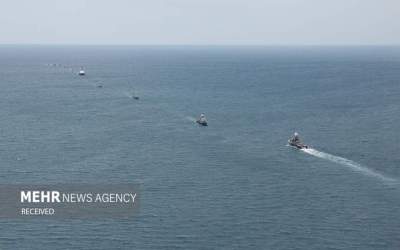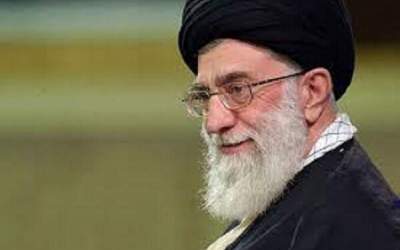Saturday 3 December 2016 - 15:51
Story Code : 241350
Trump and the policy of controlled reduction of intervention in the Middle East
For this reason, adopting a strategy by the new president to reduce his country�s costs in international arena can redirect the available assets and potentialities toward resolution of domestic crises in the United States. This issue will cause the country�s foreign policy apparatus to go for the second option when it finds itself at a crossroads where it would have to choose between maintaining the United States� hegemony outside the borders through beefed-up military presence or attending to the country�s internal problems.
In the meantime, from the viewpoint of Trump, continued presence in the Middle East, as a region where the United States has had high influence and also paid a high cost since the time of the former president, George Bush Jr., is subject to a lot of debate and doubts. In view of domestic concerns faced by Trump, the new president is now faced with two main options to choose from: 1. continuation of the United States� past interventionist policy, or 2. continuation of President Barack Obama�s policies by changing the type of US presence in other parts of the world and reducing the costs of a possible war through this policy.
The way Trump is apparently going to put neoconservative figures in key posts shows that Trump and his team must first deal with a fundamental contradiction before taking any action or decision. Accepting Trump�s domestic priority for reduction of US presence in such key regions as the Middle East would send the signal to regional and transregional actors like Europe that they would see a new period of decline in US hegemony, which would not be compatible with the ideal of the Republican figures. On the other hand, modifying the idea of US exceptionalism would require acceptance of new intra-party realities and a new discourse under the leadership of Trump. It is not clear to what extent Trump will be able to lead such a discourse-based current, but it is clear that this will take time and no specific results can be expected in short term.
Therefore, due to structural and financial limitations faced by the United States, we are currently witnessing watering down of the ideological and extremist reading of the American exceptionalism at least with regard to the way that Trump�s America is going to deal with the Middle East. A look at Trump�s election slogans, including those in which he said littoral Arab states of the Persian Gulf would be billed for Washington�s presence in the region, shows that the cost and benefit equation will play a more active role in the United States� foreign policy and in the Middle East than ever before.
Of course, if this approach is practically taken by the United States, it would add to the costs of rich Arab states in the region, but it is not possible to face much opposition from them in view of the threats that these actors think are facing and also because of their inability in various security fields.
It seems that after a short period of tension, relations between the United States and Arab countries in the Persian Gulf will enter a new phase of interaction, though with different rules of game compared to the past years. Since the new US president looks upon foreign policy through the lens of business-like definitions, concepts and models, he is possible to come up with a lingua franca in order to talk to regional Arab states, which for their part, are also good in trade and business. In this lingua franca, the concept of free ride would mean nothing to either of the two sides.
However, the most important field, which needs urgent decision, is Syria. It seems that Trump may embark on some sort of gambling in Syria, and as he has said before, may opt for political bargaining with Russia�s President Vladimir Putin. The positive aspect of such a strategy is that regional actors have also reached the conclusion that close cooperation between Moscow and Washington will decrease spiritual and material costs that they have to undertake for the annihilation of Daesh. It is simply logical for regional actors to try to own more trump cards in this win-win game, while Russia and the United States will also try to get more concessions of regional actors. This situation will provide good opportunities for Trump to take advantage of his abilities.
Trump's approach to the peace process between Arabs and Israel was not different from his predecessors even in the heat of election hustings, and this is why analysts believe that no change will take place in the longstanding confrontation between Palestinians and Israel under the new US president. They also maintain that Trump will continue to support the two-state solution, though no serious effort has been made to do away with its blind spots and ambiguities.
However, according to Trump's election remarks, the issue of Iran and its nuclear deal with the P5+1 group of countries, which is known as the Joint Comprehensive Plan of Action (JCPOA), will be among the most challenging issues facing the new US president. Trump had noted previously that he would rip the JCPOA. Later on, however, he corrected his past position and said he would try to work out a better agreement with Iran. But in practice, Trump will realize that the cost of any breach of promises and showing disrespect for other parties involved in the conclusion of the nuclear agreement will be much higher than he imagines even when changes remain limited to small details of the agreement and not its main frame.
On the other hand, in view of Iran's high influence in the Middle East, if the United States practically turned its back on the JCPOA and adopted a hostile approach to Iran, it would increase the costs of not accepting the nuclear deal too heavy for Trump to be able to risk it given domestic conditions in the United States and the country�s policy to reduce its military presence across the world.
On the whole, it seems that when special cases and exceptions are set aside, Trump's approach to the Middle East will be midway between previous approaches adopted by former US president, George Bush Jr., and incumbent President Barack Obama. In other words, the new US president will go for the policy of controlled reduction of foreign interventions, so that, he would both avoid leaving the Middle East entirely to such rivals as Russia, while managing the costs and benefits of such measures in a more efficient way.
# Tags










